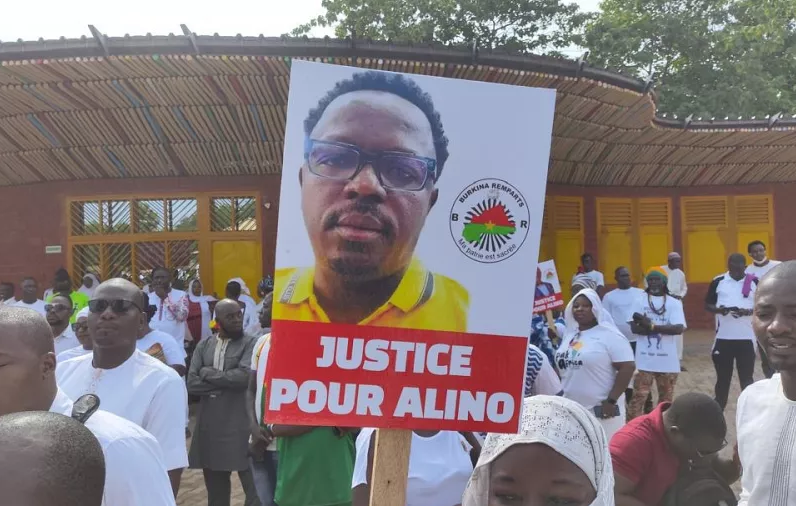The repatriation of Alain Christophe Traoré, widely known as Alino Faso, to Burkina Faso from Côte d’Ivoire has sparked a wave of national mourning and intensified demands for justice. Traoré, a prominent social media figure and vocal supporter of Burkina Faso’s ruling junta, was found dead in late July in a cell at the Dakar gendarmerie school in Abidjan. Ivorian authorities concluded that he died by suicide, allegedly hanging himself with bedsheets. However, this account has been forcefully rejected by both his supporters and the Burkinabe government, who have labeled the incident a “villainous murder” and condemned the lack of prior notification to his family, legal counsel, or Burkina Faso’s embassy.
In Ouagadougou, the capital, hundreds of mourners dressed in white staged a solemn march from the Thomas Sankara Memorial to the Ivorian embassy, demanding transparency and accountability. Protesters carried placards calling for truth and justice, framing Traoré’s death as emblematic of deeper national grievances and a broader struggle against impunity. The Burkinabe government has vowed that the death “will not go unpunished” and is pressing for a joint investigation to uncover the full circumstances surrounding the incident.
Human rights organizations have expressed concern that the case could further strain diplomatic relations between Ouagadougou and Abidjan, especially given the political sensitivities surrounding dissent and detention in the region. Traoré’s death has become a flashpoint in West Africa, highlighting the fragile balance between state authority, civil liberties, and regional diplomacy. As calls for justice grow louder, the incident continues to reverberate across borders, raising urgent questions about accountability and the treatment of political voices in detention.
